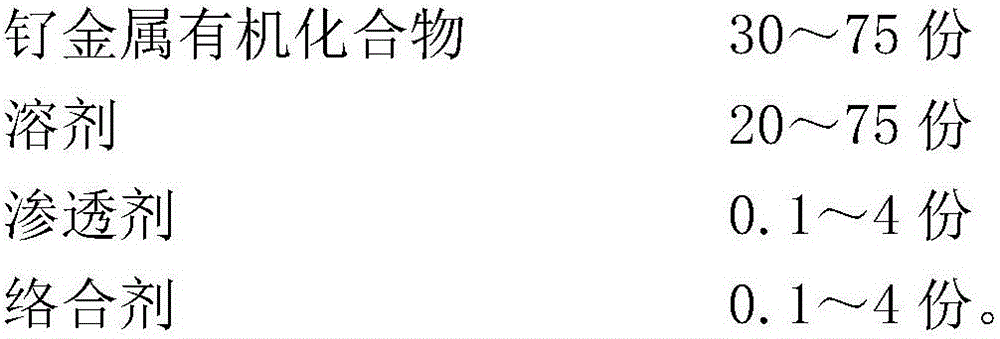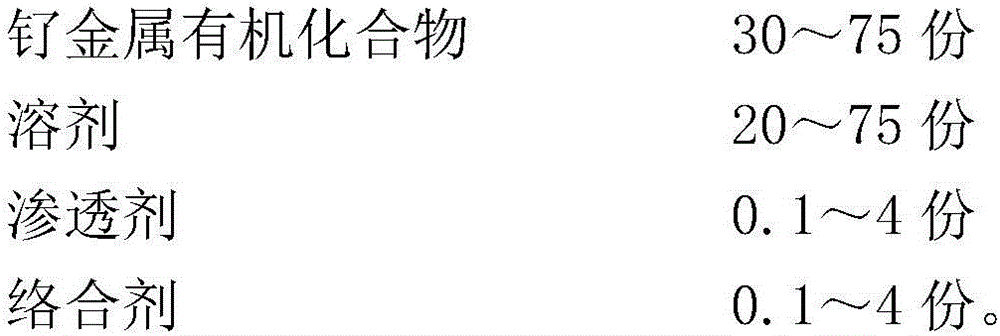Permeable ink applicable to ceramic surface printing
A ceramic surface and ink technology, which is applied in the field of architectural ceramic decoration, can solve the problems of impure ink color, insufficient penetration depth, and affecting the decoration effect of pattern texture, etc., and achieve strong three-dimensional effect, high resolution, and pure hair color. Effect
- Summary
- Abstract
- Description
- Claims
- Application Information
AI Technical Summary
Problems solved by technology
Method used
Image
Examples
Embodiment 1
[0024] Mix ruthenium trichloride and naphthenic acid in a molar ratio of 1:3, stir and react at a temperature of 120±5°C to prepare ruthenium naphthenate;
[0025] After stirring 61.4 parts of n-hexane, 1.5 parts of fatty alcohol polyoxyethylene ether and 1.1 parts of triethanolamine at high speed, slowly add 36 parts of ruthenium naphthenate and stir at high speed to obtain a mixed solution;
[0026] The obtained mixed liquid is subjected to ball milling and sand milling to prepare black penetrating ink which can be used for ceramic surface printing.
Embodiment 2
[0028] Mix ruthenium trichloride and naphthenic acid in a molar ratio of 1:3, stir and react at a temperature of 120±5°C to prepare ruthenium naphthenate;
[0029] After stirring 41.7 parts of n-hexane, 1.8 parts of fatty alcohol polyoxyethylene ether and 1.5 parts of triethanolamine at high speed, slowly add 55 parts of ruthenium naphthenate and stir at high speed to obtain a mixed solution;
[0030] The obtained mixed liquid is subjected to ball milling and sand milling to prepare black penetrating ink which can be used for ceramic surface printing.
Embodiment 3
[0032] Mix ruthenium acetate and naphthenic acid at a molar ratio of 1:2.5, stir and react at a temperature of 110±5°C to prepare ruthenium naphthenate;
[0033] After stirring 20 parts of dichloromethane, 1.8 parts of nonylphenol polyoxyethylene ether and 0.1 part of diethanolamine at high speed, slowly add 30 parts of ruthenium naphthenate, and stir at high speed to obtain a mixed solution;
[0034] The obtained mixed liquid is subjected to ball milling and sand milling to prepare black penetrating ink which can be used for ceramic surface printing.
PUM
 Login to View More
Login to View More Abstract
Description
Claims
Application Information
 Login to View More
Login to View More - R&D
- Intellectual Property
- Life Sciences
- Materials
- Tech Scout
- Unparalleled Data Quality
- Higher Quality Content
- 60% Fewer Hallucinations
Browse by: Latest US Patents, China's latest patents, Technical Efficacy Thesaurus, Application Domain, Technology Topic, Popular Technical Reports.
© 2025 PatSnap. All rights reserved.Legal|Privacy policy|Modern Slavery Act Transparency Statement|Sitemap|About US| Contact US: help@patsnap.com



